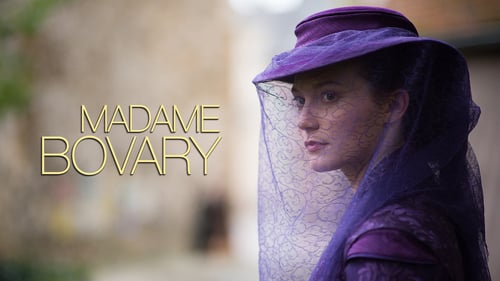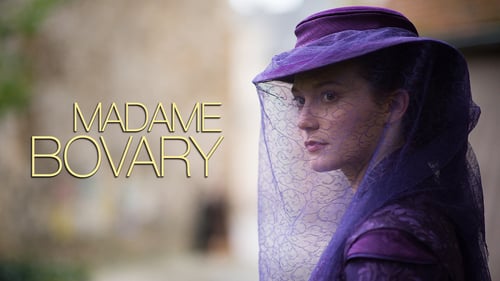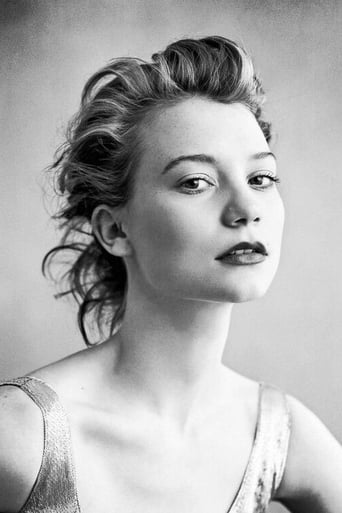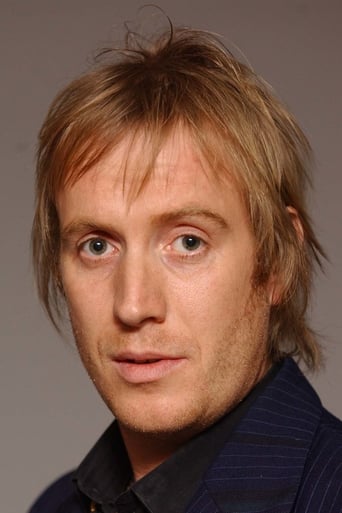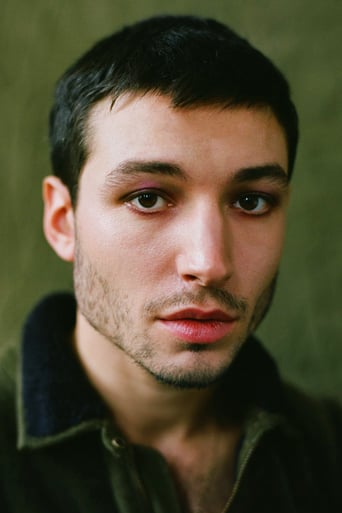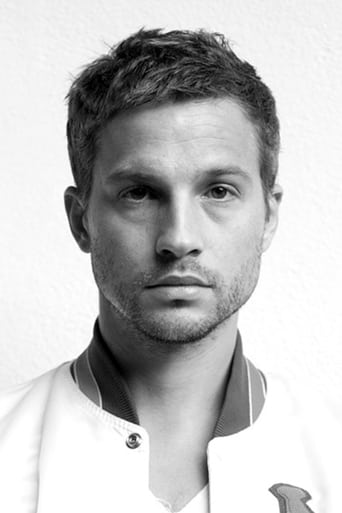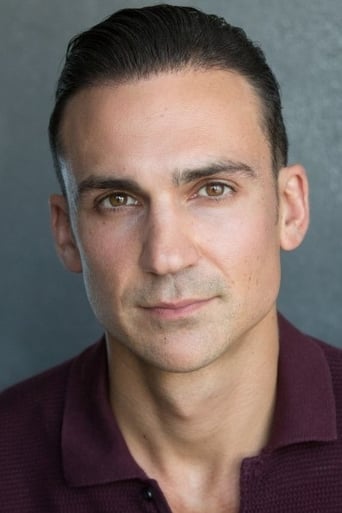Teyss
"Madame Bovary" by Flaubert, the famous literature classic, is one of the most adapted novels on screen and probably the most adapted French book (together with "The Three Musketeers" by Dumas). Notable directors include Renoir (1933), Minnelli (1949) and Chabrol (1991). Some movies are not strictly based on the story but are remotely inspired by it, for instance "Abraham's Valley" by Oliveira (1993).Hence why a new adaptation? In general, the main reasons for filming literature are either to create an altogether new dimension to the story (one of the best examples is "Vertigo" by Hitchcock), either to reveal emotions or thoughts from the book. "Madame Bovary" by Sophie Barthes tries to achieve the latter, with limited success. It almost constitutes a case study of the benefits and limits of novel adaptation.*** WARNING: CONTAINS SPOILERS (INCLUDING OF THE ORIGINAL NOVEL) ***One issue about filmed literature is the necessity to select events, characters, themes, etc. else the movie would run for hours. "Madame Bovary" cuts a great deal from the book. One feels the action runs for less than a year while it actually lasts for eight (from the wedding to Emma's death) or, if we take into account all of the original story, for more than twelve years. Significant characters appear only a few times: Emma's father, Homais, Hippolyte, the priest, the mayor, etc. Many are simply discarded. We do not see Charles' parents nor his first marriage and his wife's death. The Bovarys do not move to a bigger town and, most significantly, they do not have a daughter. Charles has a small role in the movie, while in the book the first chapters are dedicated to him and he remains very present.So the movie focuses on Emma. This would not be an issue if the character and related themes were given more depth. Notably, an important aspect of the novel is how Emma fantasises about an ideal life before crashing against reality (one of the reasons why Flaubert said: "Madame Bovary, c'est moi"). This is famously illustrated by a fabulous party in a castle, thrilling Emma for weeks onwards, during which she idolises a cigar case lost that evening. In the movie, the party is replaced by a hunting scene. Transposing the event is not a drawback in itself; formally the scene is actually well done. However it does not show how Emma becomes exalted: she is just shocked by the deer's death (this has a symbolic meaning of course, but the result is thin). The cigar case afterwards simply becomes an object to return to its owner.Another key scene of the novel is an opera that exalts Emma's romantic feelings. Here, it is replaced by a small concert in a castle, probably because a full-scale opera would have been too costly to produce, which is fair enough. Yet we do not see Emma transcended by art and beauty.A different aspect of the novel's main character is her constant greed, which can render her ruthless. For instance, she nastily dismisses her first maid and she pushes Charles to operate poor Hippolyte purely out of calculated ambition. This is not depicted in the movie, probably not to highlight her dark side, but then her personality loses complexity.I think that direction is responsible rather than acting: Mia Wasikowska is not just pretty, she is a great actress, as she already demonstrated in "Jane Eyre" (Fukunaga), from another 19th century classic. She illuminates the screen with hope, desire, love, joy, misunderstanding, boredom, loss, despair, hate… even though her deep motives are not depicted. Other actors also are convincing and could have shown the full scale of their talent if their roles had not been reduced to a minimum. The most impressive is Rhys Ifans as a manipulative bastard (Lheureux).Another important theme of the book is pettiness, notably in the countryside that Flaubert despised: gossips, shallow friendships, false supports, greed, treachery. This is not shown in the movie, except with Lheureux. Homais even seems to support Charles until the end, in contradiction with the story and the essence of the novel. Eventually the movie also misses Flaubert's cruel ending: the good Charles dies of sorrow, his daughter becomes poor and the sleazy Homais triumphs.Not fully sticking to the novel is not an issue in itself, nor is disregarding some themes and characters, but not filling the resulting gap is. In the end, what emerges from the movie? An excellent illustration of 19th century countryside life: settings, costumes, lighting, colours, occupations, slow pace. Many scenes are shot as beautiful paintings. Rhythm is balanced: slow enough to illustrate everyday life, fast enough to be interesting. Structure is gripping: the whole movie can be seen as a flashback of Emma's life that she remembers as she dies. In summary, apart from the sad story, watching is pleasant.Hence it is unfortunate the film lacks content because if it had more depth, coupled with the existing technique and talented actors, it could have been a great movie. However, to be fair, it is generally considered that none of the previous adaptations of "Madame Bovary" are outstanding, except perhaps "Abraham's Valley".
gradyharp
Yet again we have an incarnation of Flaubert's novel of infidelity and this time the transformation of the book to screen (by Felipe Marino and director Sophie Barthes) is, at best, weak. The pacing of the film is adagio and the cast is adequate if unremarkable. The only standout in the film is the costumer and the strange but adequately atmospheric music by Evgueni and Sacha Galperine.For those who have forgotten the story, 'In mid-1800s Normandy, France, farmer's daughter Emma (Mia Wasikowska) leaves the convent where she was educated and marries a young doctor, Charles Bovary (Henry Lloyd-Hughes). With high hopes for a fulfilling and romantic future like the ones she reads about in novels, Emma leaves her childhood home and loving father, moving to the small town of Yonville where Charles has based his practice. While Charles loves his new wife, he is consumed by his work and is out of the house all day visiting patients. During their brief daily time together, Emma is bored and repulsed by his talk of ailments and dull business affairs, and Charles is all but oblivious to her ennui. With no regular company besides their maid, Henriette (Laura Carmichael), Emma becomes a vulnerable client to the crafty local merchant Lheureux (Rhys Ifans), who entices her with luxury goods available for purchase on credit. Emma soon befriends a young clerk, Leon Dupuis (Ezra Miller), who shares her romantic frame of mind and disdain for provincial Yonville. Emma longs to go to Paris and immerse herself in the culture, and has quickly tired of her dull existence as a country doctor's wife. Leon secretly confesses his love to Emma, who, despite the mutual attraction, dismisses his advances. Leon departs for law studies in Paris. Charles and Emma are invited to a hunting party by the Marquis d'Andervilliers (Logan Marshall- Green), who had dropped by Doctor Bovary's house to have one of his servants treated. The Marquis was immediately attracted to Emma, who becomes so excited about the excursion into high society that she orders expensive clothes from Lheureux for the occasion. At the party, she is entranced by the luxury of the upper-class and by the subtle advances of the Marquis, whom she meets once more at an agricultural show. Emma's thirst for extravagance only grows, and she begins to spend liberally to beautify the house and her wardrobe, all on credit from Lheureux. She also takes the advice of local pharmacist Homais (Paul Giamatti) and convinces her husband to operate on the club-foot of Homais' servant Hippolyte (Luke Tittensor) and become a celebrated surgeon. The surgery fails. Ashamed of her husband's incompetence and feeling all the more stifled, Emma visits the Marquis at his home and confesses her misery. They begin an affair, with Emma making regular trips on foot through the woods to visit him. Charles has no inkling of his wife's unhappiness in the marriage or of her affair. Emma eventually begs the Marquis to run away with her, and though he initially refuses, he calms her by promising to make arrangements to elope.' And to tell the rest would be consider spoilers.Mediocre at best this is a very long song that could have been so much better in so many ways.
Bob-353
Not expecting too much from this movie I was hoping to be surprised. Well I was. It was worse than I thought. Boring storyline, which has been done to death with these types of period pieces. There was no real point to any of it really. Just a few romps in the sack, with some passing fantasies of M Bovary, and that was it really. In the main she was the totally frustrated and bored housewife, but not quite as much as I was just watching. Scenery and cinematography wasn't even enough to lift the spirits. Throughout the film I was expecting a sudden change of pace or a dynamic twist to ramp up the whole affair, but somehow it just meandered along at such a sluggish pace, I openly admit I did nod off, much to my wife's annoyance. I would gladly give this movie. big fat zero, but have to settle for a 1/10. Dreadful.

